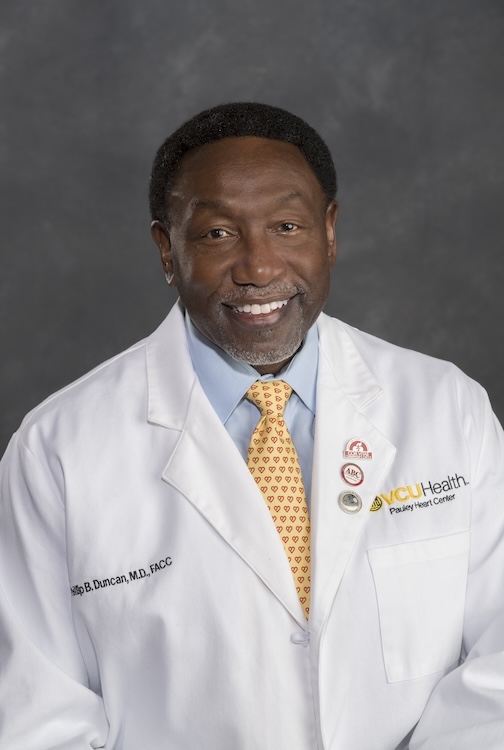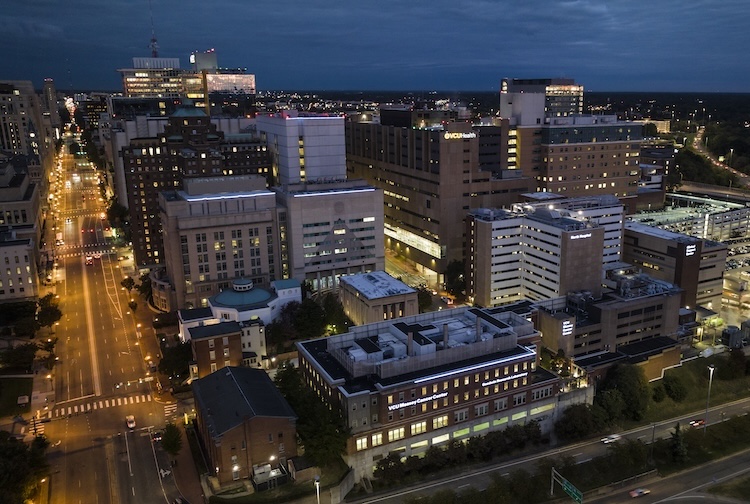Facing higher risk, here’s what Black Americans should know – and do – about their heart health
From doctor visits to diet and exercise tweaks, small changes can have a big impact.
February 20, 2025 Studies show that increased rates of heart disease in Black Americans is due to a combination of social determinants of health and lifestyle factors. (Getty Images)
Studies show that increased rates of heart disease in Black Americans is due to a combination of social determinants of health and lifestyle factors. (Getty Images)
By Liz Torrey
Heart disease is the nation’s leading cause of death, but Black Americans are more susceptible than other ethnic groups. They are 30% more likely than white Americans to die from heart disease, and Black men have a 70% higher risk of developing heart failure than white men.
Research has revealed that rates of heart disease in Black Americans is not due to race itself, but rather to a combination of social determinants of health (nonmedical factors such as environment, income and social context) and lifestyle factors (habits and choices such as diet, exercise and sleep).

Phillip Duncan, M.D., a general cardiologist at VCU Health Pauley Heart Center, shares some of the guidance he gives specifically to assist his Black patients in adjusting their lifestyle choices to improve cardiovascular (and overall) health. But his advice can serve anyone, of any race or ethnicity, who hopes to prevent heart disease.
What’s the first step you recommend to someone looking to improve their heart health?
People have got a lot on their plate, and when they’re busy, it’s easy to put health on the back burner. Too often, I see folks “let things go” until something drastic happens, like a heart attack, stroke or heart failure. I’m only seeing many of my Black patients after they’ve had a cardiac event. The other problem occurs when someone does make time for a doctor’s appointment, but they may feel like the doctor doesn’t have that much time for them or isn’t really listening to their concerns.
It’s vitally important to find a doctor you can trust and to make time for regular appointments. I recommend using your birthday month to call and schedule all your annual health checkups for the next year – even if it’s just one, with a general practitioner. If you have concerns about your heart health for any reason, I also recommend making an appointment with a cardiologist.
Think of it this way: Going to the doctor is a gift – a way of truly taking care of yourself. If you don’t have a primary care physician, or if you’re seeking a particular type of specialist like a cardiologist, ask your friends, colleagues, neighbors or members of your church for recommendations. Word of mouth can be a great way to find a healthcare provider.
What’s the single best thing someone can do today to improve their heart health?
Get your blood pressure checked. You don’t have to go to the doctor to do this! Six in ten Black American adults have high blood pressure (also known as hypertension), and about half of people who have high blood pressure aren’t aware of it. High blood pressure causes so many of the most devastating forms of cardiovascular disease: heart attack, heart failure, stroke, plus kidney failure, vision issues and more. Yet high blood pressure is easily remedied by inexpensive medicines.
You can get a free or low-cost blood pressure reading at your local pharmacy, community health clinic or urgent care clinic. In Richmond, you can also get your blood pressure checked for free at local libraries and/or fire stations. Home blood pressure cuffs are not too expensive – that’s a great way to regularly check your blood pressure, which should normally be less than 130/80.
If you find you may have high blood pressure, ask your doctor, or the person who is taking your blood pressure, what your next best step should be.
Do certain types of heart disease particularly impact Black Americans?
Two diseases we treat here at the Pauley Heart Center that disproportionately impact Black Americans are amyloidosis and sarcoidosis.
Cardiac amyloidosis is a disease where proteins called amyloids build up deposits in your heart muscle. Over time, this buildup prevents your heart from pumping properly and can cause heart failure. There are a couple of different types, but the hereditary type first came to the U.S. from Western Africa during the slave trade, and 1 in 20 Black Americans carry the gene mutation for amyloidosis. Having the mutation doesn’t mean you’ll definitely develop amyloidosis, but it does increase your general risk of all types of heart disease.
Sarcoidosis also disproportionately affects Black Americans, although we’re not entirely sure why. Sarcoidosis is a rare inflammatory disease in which clusters of inflamed tissues, called granulomas, form throughout your body – most commonly in the lungs, but they can also cause scarring in the heart. If you have a close relative with sarcoidosis, you’re five times as likely to develop the disease as someone who does not.
Amyloidosis and sarcoidosis cause similar symptoms: fatigue, chest pain, shortness of breath, heart palpitations, swelling in the legs and ankles, and lightheadedness and fainting. Amyloidosis symptoms can also include carpal tunnel syndrome and spinal stenosis.
If you’re concerned you may be at risk for either of these diseases, there is testing available – speak to your doctor and ask for referral to an amyloidosis or sarcoidosis specialist, both of which we have here at Pauley. In fact, we have the only amyloidosis clinic in central Virginia and the only multidisciplinary sarcoidosis clinic in the state.
What do you recommend in terms of diet?
First, just take a moment to think about what you eat. If you regularly enjoy fried foods, heavily salted foods or ultra-processed foods, it’s time to make some small changes. Ultra-processed foods are things like packaged cookies, pastries and chips; sodas and energy drinks; and ready-to-eat meals like frozen pizza, chicken nuggets, fish sticks and more.
Here are some simple tweaks folks can make to their diets to benefit heart health:
- When possible, bake foods instead of frying them. Try using an air fryer or a convection oven.
- Consider how much salt is in your food to begin with, and how much you may be adding to your food. Reduce the amount of salt you add, and try alternatives to add flavor – like garlic, lemon juice, onion powder, ground black pepper and other herbs/spices.
- If you regularly enjoy sugary and/or processed snacks like cookies, candy or chips, swap out one each day for a handful of nuts, a bowl of popcorn, or a piece of fruit or vegetable.
And what about exercise?
If you don’t exercise at all, the standard recommendation of 150 minutes of exercise per week can seem completely overwhelming. But research is beginning to show that even very short bursts of physical activity, when done daily, can have a big, positive impact on your overall health.
You sometimes hear people call this type of activity “exercise snacks.” Exercise snacks are things like: Park far away from the store and walk fast as you can from your parking spot into the store. When taking an elevator, take at least one flight of stairs, then board the elevator (or take the stairs the entire way). Perform “sit to stand” exercises at your desk for one minute. Squats, lunges, jumping jacks and pushups are also great exercise snacks. Start with ten reps and build from there.
Adding very small amounts of physical activity like this to your daily routine is incredibly beneficial to your health. The point is to do something: When it comes to exercise, something is always going to be better than nothing.
Meet our team of heart care experts for both common and complex cardiac conditions




